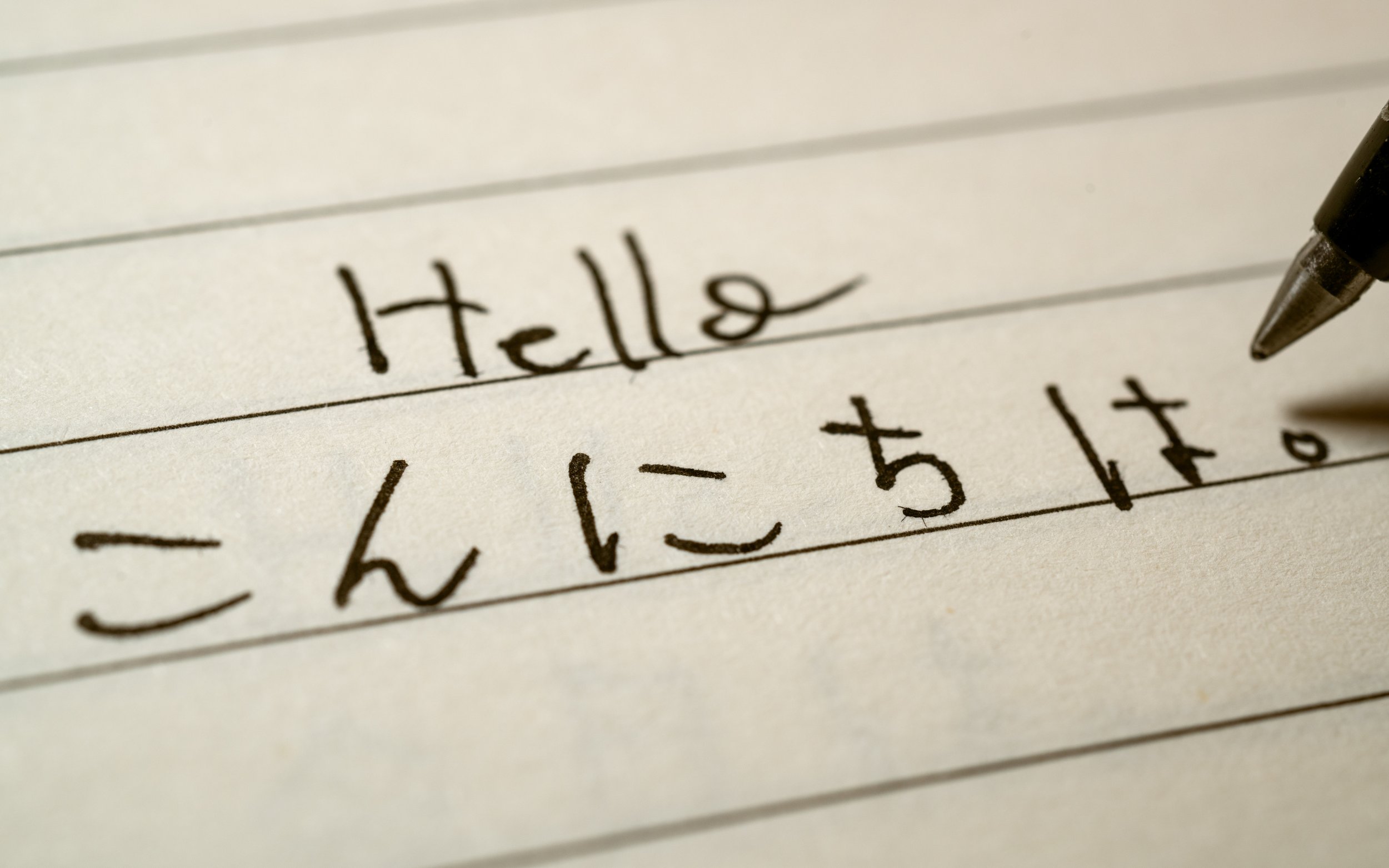Learning Japanese at FWJS: More Than Just a Language Class
Picture this: you're about to plunge into the depths of a vibrant new language, where every word, every brushstroke, and every nuance offers deeper insight into a culture steeped in equal parts tradition and modernity. Sound exciting? Welcome to our Japanese classes at Fort Worth Japanese Society. We offer more than just a curriculum; we offer a key to unlock a world where understanding and appreciation between Japanese and Americans thrive.
You might be wondering, what sets our classes apart from a university course or self-learning? Well, no matter which path you choose in your linguistic quest, the most crucial thing is that first brave step you take, committing yourself to a lifetime journey that promises to broaden your horizons. However, we firmly believe our classes have a certain je ne sais quoi, an edge that sets them apart. Allow us to share a few reasons why.
But first, a little basic information about the classes
The Japanese language classes offered by the Fort Worth Japanese Society are relatively informal classes guided by a native Japanese speaker. Although they are not accredited, like classes at a college or university would be, our teachers are well-practiced in helping students master the fundamentals of the Japanese language as well as providing opportunities for more advanced students to practice and hone their skills.
Our curriculum for beginner and intermediate-level classes is centered around the Japanese for Busy People textbook series. This resource can be conveniently purchased on Amazon or at Kinokuniya bookstore located in Carrollton, Texas. It's worth noting that the first volume of these books is available in both a romaji and kana version. However, we strongly recommend students choose the kana version, setting them on a path to mastering reading Japanese from the outset.
Regarding advanced-level classes, there's an element of variability in teaching materials. The smaller class sizes afford our teachers greater flexibility in their teaching approach. They are occasionally able to adapt the teaching material to reflect the interests and needs of the students from semester to semester.
With those basics about what our classes offer out of the way, we have come to an important question: why choose our classes at the Fort Worth Japanese Society? Well, let’s delve into our list of reasons that we feel make our classes a standout choice.
They Are Led By a Native Speaker
We already touched on this a little bit, but it’s worth exploring a little more about what makes this so important.
To put it simply, it gives you an insider’s guide to the language. Teachers who are native speakers offer an inherent understanding of subtleties, idioms, and cultural references embedded in the Japanese language. They are able to shine a light on the finer details of Japanese linguistics, such as its rhythm, pitch, and intonation - all elements that can elevate your fluency and give your Japanese an authentic ring.
Our teachers also know what it is like to learn a language other than your native one. Every one of them spent years becoming fluent in English, so they know exactly what you are going through as you learn their language - just in the other direction!
Moreover, they can offer insight into Japanese customs and etiquette. Their firsthand knowledge can help enrich your cultural comprehension, lending an authenticity and respect to your interactions with other Japanese speakers. This particularly comes in handy if you plan to immerse yourself in Japan, whether it be for work or leisure.
Lastly, native speakers offer the value of immediate feedback and correction, particularly when it comes to pronunciation. The Japanese language contains unique sounds that may not exist in other languages.
Learning from someone who has spoken Japanese since their first words gives you a distinct advantage in mastering these sounds because it gives you firsthand practice listening to those sounds outside of robotic textbook recordings.
The Class Sizes are Intimate
Next, there’s no risk of getting lost in a crowded classroom during our lessons. Most of our classes have 6 to 10 students per class, compared to 30 or more in a typical classroom setting.
With fewer students in the classroom, each individual receives more personalized attention from the instructor. This means that the teacher has more time to recognize and address each student's unique strengths and weaknesses. In the context of learning Japanese, this could translate to additional support in dissecting complex grammar structures, understanding new kanji, or perfecting pronunciation.
Secondly, everyone has a chance to speak up. Smaller class sizes like these encourage participation and allow more time for each student to practice new material. This is crucial in language learning, where practice makes perfect. The more opportunities students have to use Japanese in conversation, the quicker they'll become fluent.
Study within a Community
Learning Japanese can also be a rewarding social endeavor, not just an academic one.
Small class sizes naturally foster a community among students, enhancing the learning experience in a significant way. As students familiarize themselves with each other through group activities and language practice, the classroom can become a supportive, friendly environment.
A key advantage of this setting is the pooling of valuable tools and resources. Each learner has knowledge of their own set of resources, be it websites, apps, books, or study techniques. This collective sharing improves not only individual learning experiences but also bolsters the overall success of the class.
Accountability is another crucial benefit. Being part of a group of like-minded individuals with similar goals creates a network of people who understand your learning struggles and progress. They offer encouragement, celebrate successes, and provide gentle reminders to stay on track when you deviate.
Finally, being part of a learning community provides an outlet to voice frustrations and challenges. The journey of learning Japanese can sometimes feel daunting, but a supportive group helps share these experiences, making the process less intimidating. The understanding and empathy from peers offer the emotional support needed to persevere.
You Are Contributing to a Local Non-Profit
Finally, there’s the cost.
As of the Fall 2023 semester, a 16-week class is $210 for FWJS members ($250 for non-members). That averages out to just over $13 per class.
Every penny of your tuition is put to good use. The lion's share goes directly to the teachers, who generously carve out time from their jobs and families to share their language and culture with students fascinated by Japan.
Any remaining funds are channeled into supporting the diverse activities of the Fort Worth Japanese Society. Whether it's our monthly luncheons, community outreach, or our Spring/Fall Festivals, these initiatives help us fulfill our mission of fostering a deeper understanding between Japanese and Americans.
So What Are You Waiting For?
In conclusion, taking Japanese lessons at the Fort Worth Japanese Society is an investment that pays dividends not just in language skills, but also in cultural comprehension, community connections, and personal growth. Whether you're a novice or a seasoned learner, our classes provide a rich, immersive experience that goes beyond textbooks and apps.
From the small, intimate class sizes that foster a supportive learning environment to the support of native Japanese-speaking teachers who bring the nuances of the language to life, every aspect of our approach is designed to make your journey of learning Japanese as engaging and enriching as possible. And remember, with each class you attend, you're not only honing your language skills, but also supporting our broader mission to foster understanding between Japanese and Americans.
So why wait? Embark on a transformative journey of language learning today. Check out the language classes page to explore our course offerings and find the one that suits you best. Join us at the Fort Worth Japanese Society, and let's bridge cultures, one Japanese lesson at a time.





